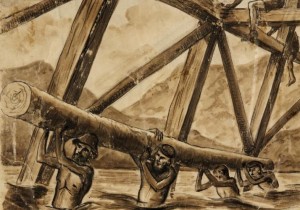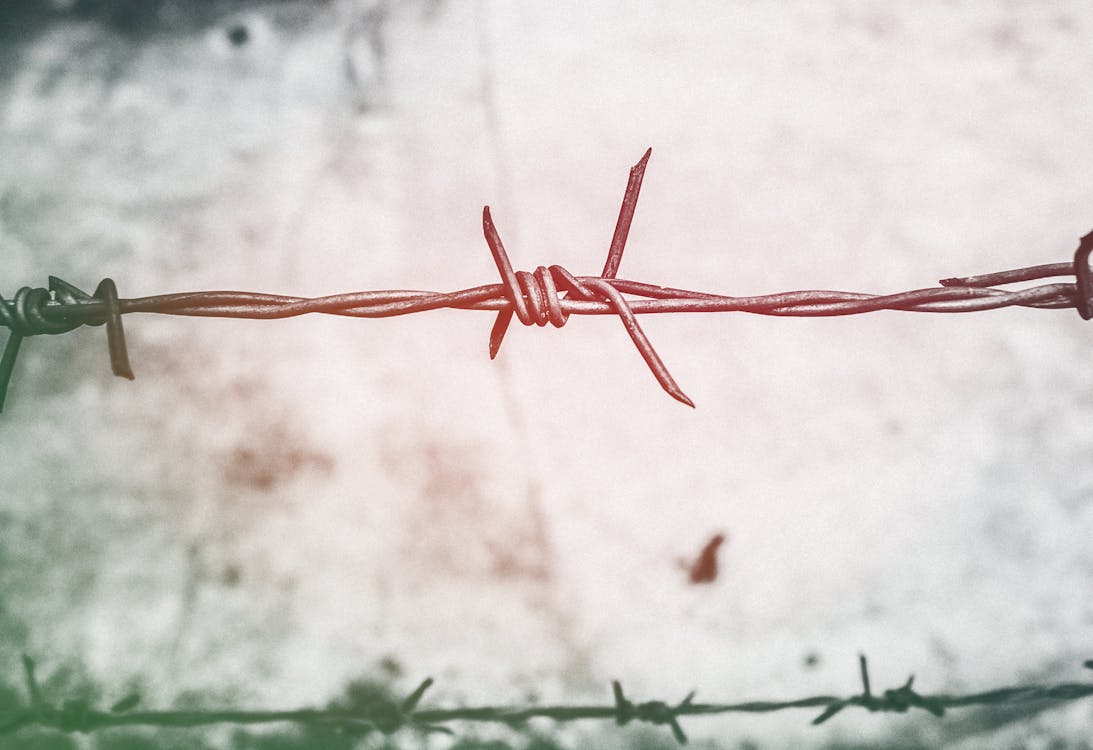We are delighted to share with you our library of resources. You can use the filter feature below to find topics most relevant to your curriculum.
Captain Ernest Gordon
What does it mean to be a real hero?
 The infamous bridge over the River Kwai, also known as the Death Railway, can be found in Western Thailand, on the border with Myanmar.
The infamous bridge over the River Kwai, also known as the Death Railway, can be found in Western Thailand, on the border with Myanmar.
During WWII, Japan constructed the 250 miles railway line from Ban Pong, Thailand to Thanbyuzayat, Burma. The Japanese wanted the railway line to transport goods to India, as part of their planned attack on the country. The bridge was built by prisoners of war and Asian slave labourers, who were kept in some of the worst conditions known in the war.
One of these prisoners was Ernest Gordon...
CAPTAIN ERNEST GORDON
 Ernest Gordon was born in Scotland in 1916. During World War 2 Gordon became a company commander with the 2nd Battalion, Argyll and Sutherland Highlanders. After the capture of Singapore in 1942, he and some other soldiers escaped to Java, attempting to sail several thousand miles from Padang to Sri Lanka. They were eventually captured by the Japanese and marched into the jungles of Thailand, where they were forced to build the bridge over the River Kwai.
Ernest Gordon was born in Scotland in 1916. During World War 2 Gordon became a company commander with the 2nd Battalion, Argyll and Sutherland Highlanders. After the capture of Singapore in 1942, he and some other soldiers escaped to Java, attempting to sail several thousand miles from Padang to Sri Lanka. They were eventually captured by the Japanese and marched into the jungles of Thailand, where they were forced to build the bridge over the River Kwai.
Ernest spent three years in the Japanese prisoner-of-war camp surviving horrendous conditions. The Japanese were very cruel, ignoring the rules of the Geneva Convention, which stated that all prisoners of war should be treated well. They punished prisoners whenever and however they wanted.
The man in charge - the camp commandant - was particularly cruel.
FINDING FAITH ON DEATH WARD
The Death Ward was the building used for those prisoners of war who were believed to be close to death and would not survive. During his imprisonment, Gordon underwent torturous events including malnutrition, malaria, diphtheria, typhoid, beriberi, jungle ulcers and an operation to remove a kidney without pain relief. All of this led him to be sent to the Death Ward.
Here he was treated by two soldiers: a Methodist named 'Dusty Miller', and a Catholic known as 'Dinty Moore'. The two gave 24-hour care to Ernest. They would boil rags and clean and massage Ernest's diseased legs every day. To everyone's great surprise Ernest survived.
Up to this point, Ernest had said that he wasn't sure whether God existed or not. But he was very impressed by the faith he saw at work in the lives of these two men. Ernest saw that this example of real Christian faith survived and brought courage even when faced with the severe treatment of their captors. This encounter with a loving, sacrificial faith gave Ernest new hope and a new sense of purpose.
GREAT SACRIFICE AMONG THE PRISONERS
But it wasn't just Ernest who was touched by it. There were other acts of great sacrifice that began to shine through the darkness. Once, after a work detail, a guard believed a shovel had gone missing. He told the men that unless the culprit confessed, all the men would be killed. A soldier stepped forward and stood to attention.
He was beaten to death by the guard. It was later discovered that there was no missing shovel, but the guard had simply made a mistake when counting them.
As Ernest gained strength, he started a university in the camp in order to add purpose and direction to the lives of the men. At first, the school was held in secret, but eventually, the Japanese allowed it to be held in the open.
AFTER THE WAR
After the war, Ernest returned to Scotland where became an ordained minister of the Church of Scotland in 1950. He later moved to the USA where he became the Presbyterian chaplain of Princeton University in 1954, then dean of the chapel in 1955.
In 1981 he moved to Washington DC where he took up the post of the president of CREED: the Christian Rescue Effort for the Emancipation of Dissidents. In this role, Ernest helped several hundred dissidents, people who were imprisoned because of their beliefs, often just because they disagreed with their government.
He helped them to get out of prison in Eastern Bloc countries, such as Hungary, Romania, and Bulgaria. He knew firsthand the conditions such people had to live under and he understood the importance of helping them to freedom. Ernest also traveled around the world, serving as a visiting lecturer at the University of St. Andrews, Moscow State Open University, and International Christian University in Tokyo.
He also travelled around the world, lecturing and talking about his experiences, before passing away in 2002 at the age of 85.
